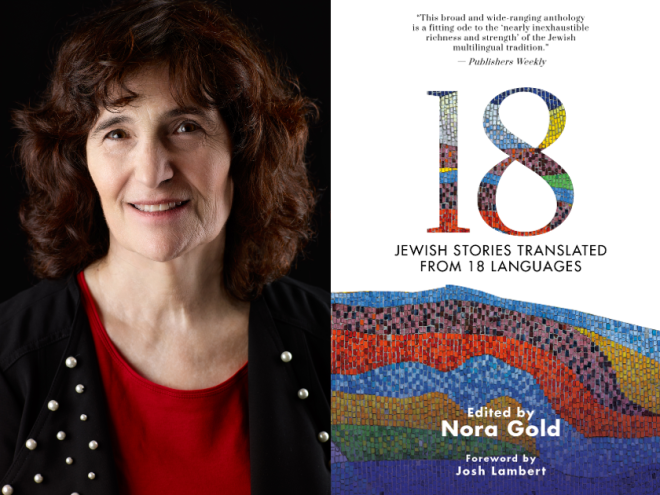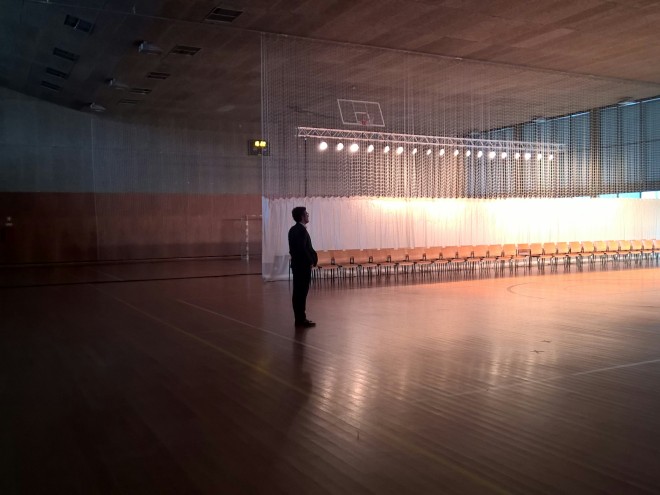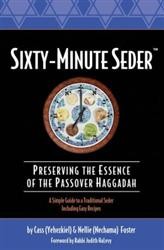This new book by award-winning writer Nora Gold is composed of two novellas: In Sickness and in Health and Yom Kippur in a Gym.
In Sickness and in Health is an introspective narrative written in the second person. It follows five days in the life of a woman named Lily, who suffers from an undiagnosed ailment that leaves her bedridden for nearly a week every month. Despite the seriousness of Lily’s illness — and the stress she feels as a result of doctors being unable to determine exactly what is wrong with her — Gold writes about this pain with a sense of humor. Whenever Lily has a series of awful sick days and can’t get out of bed, her mind goes down a rabbit hole: she assumes that her husband is having an affair with his female colleague, who often comes to their house for work meetings. She is certain that her husband is hiding things from her, and, to express this anger, Lily learns how to say ridiculous curses and angry phrases in other languages. She regurgitates them in a list, momentarily lightening the seriousness of her condition. Then, as soon as she regains her strength and health, she realizes that her worries were ridiculous.
Because Lily’s illness comes and goes regularly, she describes feeling like two different people who cannot coexist: “It’s as if there are two of you: the healthy, normal you, and the sick abnormal you, and never the twain shall meet … whenever you are sick, you cannot understand, or even recall, what the healthy you felt like, or thought, or wanted — and vice-versa. You watch the other like observing a complete stranger.” Gold writes clearly about how frustrating the health care system can be, and how women’s illnesses and disabilities often go untreated. Lily describes being unable to move when she is sick — yet doctors don’t believe the severity of her condition, because she appears to be back to “normal” when she arrives for appointments: “‘Well, you’re fine right now,’ [the doctor] said.”
In addition to explaining the stress that her illness puts on her marriage and her teaching and art career, Lily shares details about her childhood, which was riddled with bouts of seizures. Her epilepsy influenced her schooling, her relationships, and her ability to gain autonomy as she grew older. She struggled with bullying and taunting after having seizures at parties and in other public spaces. When thinking about the traumatic moments of her childhood, including experiences in which she almost died, Lily contemplates how people in the present — specifically her husband — will never fully get her if they don’t have a deep understanding of her childhood struggles with epilepsy.
Yom Kippur in a Gym is completely separate from In Sickness and in Health, but it’s similar in that it’s meditative and lasts a short span of time. It takes place in a community center gymnasium during the evening service on Yom Kippur, just before the fast ends. It’s told from the perspectives of a handful of characters, whose worries, preoccupations, and secrets readers will empathize with. Throughout the story, these characters hope to be forgiven by their community, their families, G‑d, and themselves. Tom is struggling to maintain a relationship with his siblings, especially after the death of his abusive father. Ira suffers from mental illness and contemplates suicide. Lucy is finding it difficult to accept her husband’s Parkinson’s diagnosis. Ezra contemplates the failure of his art career, caused by a mistake he made many years ago that he hasn’t been able to forgive himself for.
The rabbi reminds all the congregants that human beings were created in the image of G‑d, and that even though the focus of Yom Kippur is on repentance, they should also “acknowledge [their] good qualities too” to avoid feelings of discouragement and despair. Weak and tired after a day of fasting, everyone is eager for the service to end. All of a sudden, an emergency occurs that brings the various narrators together. Each character is thrown out of their prayers and reflective thoughts and forced into a moment of action, propelling them to realize the importance of community and their individual roles in it.
Both of Gold’s novellas are creative and provide readers with opportunities to think deeply about disability, illness, prayer, and forgiveness.
Jamie Wendt is the author of the poetry collection Laughing in Yiddish (Broadstone Books, 2025), which was a finalist for the 2022 Philip Levine Prize in Poetry. Her first book, Fruit of the Earth (Main Street Rag, 2018), won the 2019 National Federation of Press Women Book Award in Poetry. Her poems and essays have been published in various literary journals and anthologies, including Feminine Rising, Catamaran, Lilith, Jet Fuel Review, the Forward, Minyan Magazine, and others. She contributes book reviews to the Jewish Book Council. She won third prize in the 2024 Reuben Rose Poetry Competition and won second prize for the 2024 Holloway Free Verse Award through the Illinois State Poetry Society. Wendt holds an MFA in Creative Writing from the University of Nebraska Omaha. She lives in Chicago with her husband and two kids. Follow her online at https://jamie-wendt.com/ or on Instagram @jamiewendtpoet.





